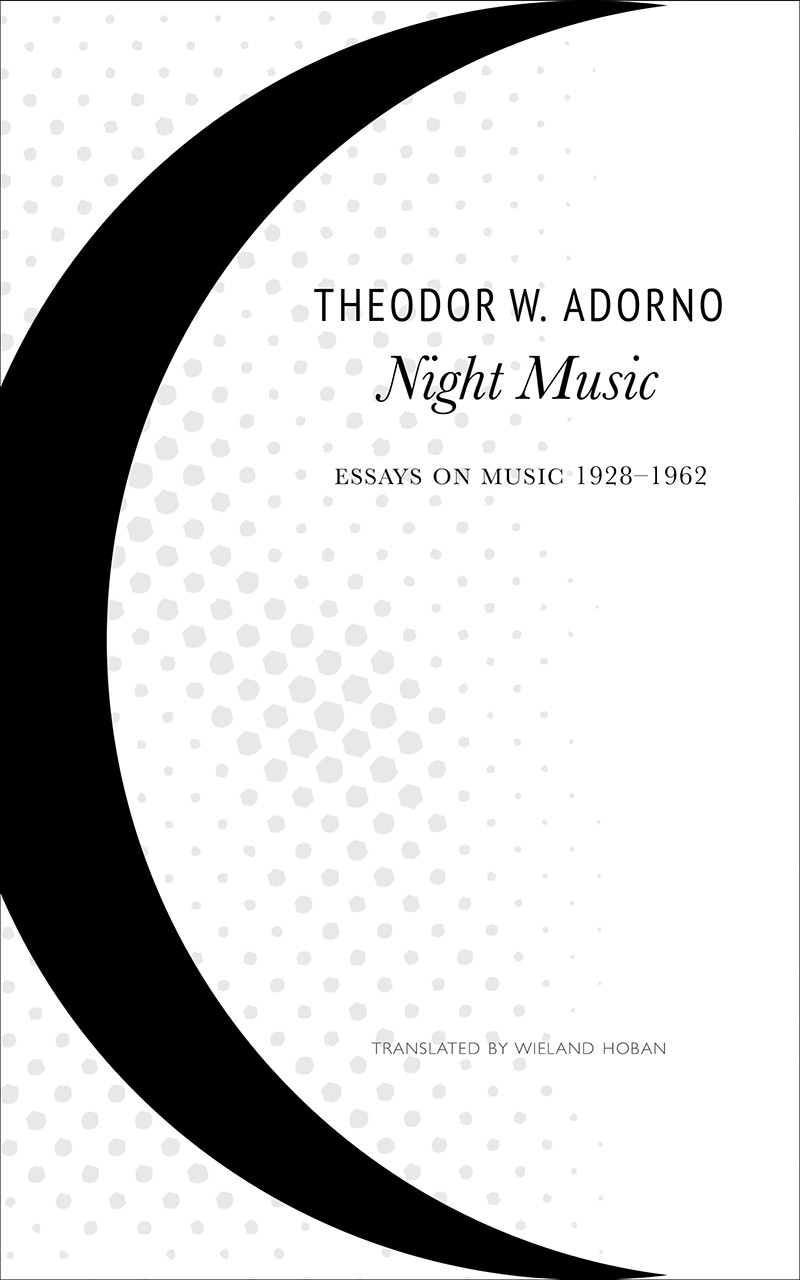What I know of classical music is what I hear on record/vinyl/cd. Beyond that, almost nothing. My reaction to Classical is totally musical, and the occasional liner note on the back cover of the album. Curious, I picked up Theodor W. Adorno's Night Music to learn more about this form of music and dip into the brain of Adorno, one of the leading 'thinkers' of the Frankfurt School of critical theory. Adorno was also a composer, and what is interesting about Night Music is that it was written from the late 1920s to 1962.
The essays are not organized in chronicle order but in a very readable manner. The book consists of two collections of texts, Moments musicaux and Theory of New Music. When Adorno speaks of new music, he's not talking about Cage (who does get a brief mention in a later essay) but composers of his generation and time, for instance, Schönberg, who is the main figure in this series of writings, along with Berg, Webern, and Ravel. There is also commentary on Beethoven, Wagner, and Bach, but the book's heart is on the Second Viennese School of Music. It's interesting to read these essays, knowing they were written when Schönberg and Ravel were active and making music. One is not looking back, but when these essays were written at the present. The writing, for me, is readable but also difficult due to its density and Adorno's knowledge of music. People who are either serious fans of Classical (especially 20th-century) or musicians will jump on this book with no problem, but for the guy or gal, it's a serious journey into the rabbit hole that is music.
Seagull Books, which published Night Music, should get a special notice for the design of the book and their great taste in titles. Also, Wieland Hoban did a fantastic job in doing the translation from German to English.




I was never able to enjoy Adorno’s writings on music. More intellectual than useful. Much more successful as a philosopher. Did you know that he lived in Los Angeles for awhile?